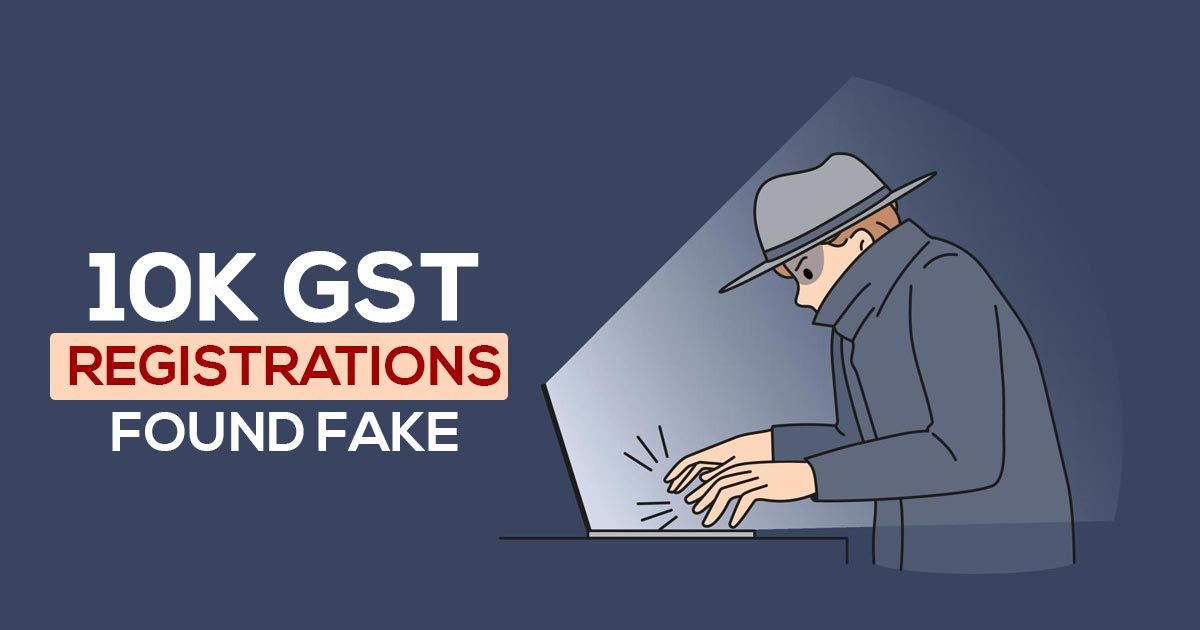
Nearly 10,000 bogus GST registrations have been fetched by the central and state goods and services tax officials in the initial week of the joint drive. The officials would have performed a door-to-door physical verification of addresses prior to executing any action. On May 15 the campaign against the bogus invoices and registration would get started and will run till 15th July.
Nearly 10,000 bogus GST registrations would have been fetched in the initial week of the drive.
In various cases, the officials witness the falsified electricity bills, property tax receipts, and rent agreements used as evidence of the principal place of business in order to get the GST registration.
Till now the bogus Input tax credit amount shall not be revealed. It will be a haste to find out the numbers however the initial estimates recommend the same to be more than Rs 25000 cr. The tax expert mentioned that the final numbers shall be revealed once the drive finishes.
Via data analytics risk parameters the physical verification cases would get selected through the GST network (GSTN) which fetches the bogus GSTIN cases for the state and central tax authorities.
Concern
However, small-scale industry lobbying organizations argue this might be problematic for smaller businesses that use co-working facilities.
Vinod Kumar, trustee and president, Forum for Internet Retailers, Sellers, and Traders (FIRST), Indias stated that the officials in charge of GST enforcement want tangible records and the presence of staff members and/or directors.
Read Also: List of Goods and Services Not Eligible for Input Tax Credit
The present campaign might inflict significant harm to the real small sellers because the majority of online sellers register their places of business as their chartered accountant’s premises or in a co-working space, giving them cost benefits and greater compliance.
The officer previously mentioned disregarded the worries by claiming that they are not search activities. Through the formation of a field, the same would be merely the verification of the physical address. Only post due diligence the cancellation action shall get performed.
The government is using artificial intelligence in order to find out the fake invoices that the fraudsters submit in order to get eligible to claim the Input tax credit (ITC).









